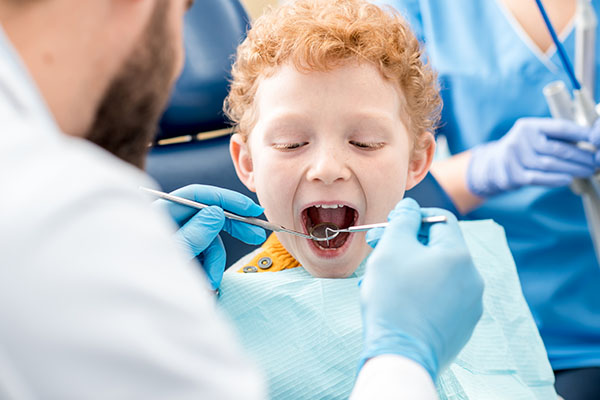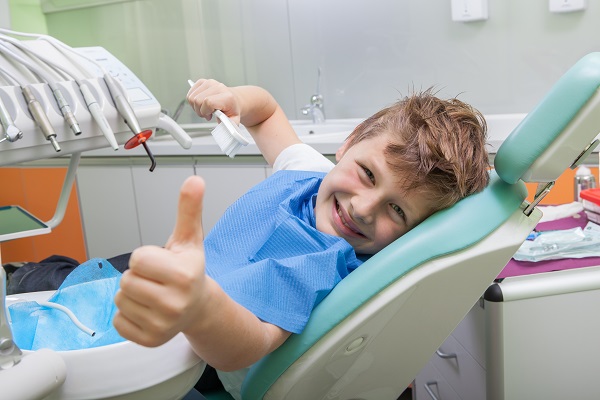A child should have a
pediatric dental examination around the same time that the first tooth erupts, which usually occurs at around six months old. In addition to checking for proper development and good oral health, dentists can look for signs of potential cavities. Erupted baby teeth are at risk for decay for a number of reasons. Milk, which is high in sugar, is the main source of nutrition for infants. When it is not properly cleaned away from the surfaces of the teeth, cavities can develop. This is especially true for young children who drink from a bottle or sippy cup for extended periods of time throughout the day or during the night.
Young children frequently put their hands and other foreign objects into their mouths as well, significantly increasing the number of bacteria that can be introduced there. Because bacteria play a pivotal role in tooth decay, this can significantly increase the risk of developing this problem. In many situations, routine dental examinations can help prevent tooth decay in very young children. Nevertheless, if an infant does develop a cavity, there are treatments available for cavities.
Many parents mistakenly believe that it is not necessary to treat cavities in baby teeth that eventually fall out. In fact, there are several reasons why care of the primary teeth is important:
Furthermore, cavities and tooth decay can cause children intense oral pain. No parent wants to see a child miserable, which is why parents should seek pediatric dental care for cavities as soon as possible.




